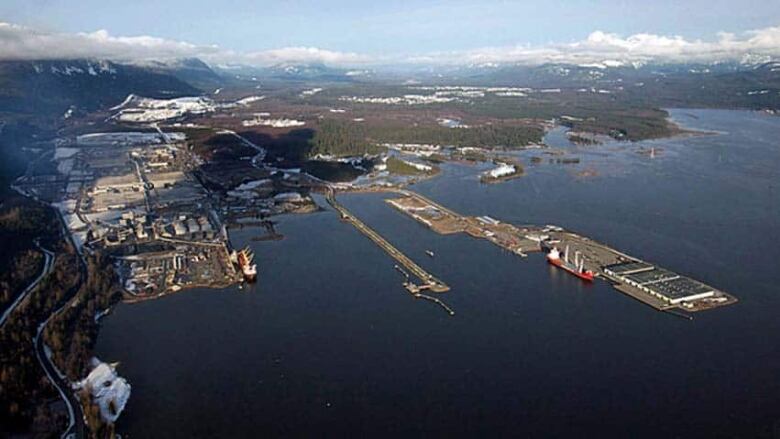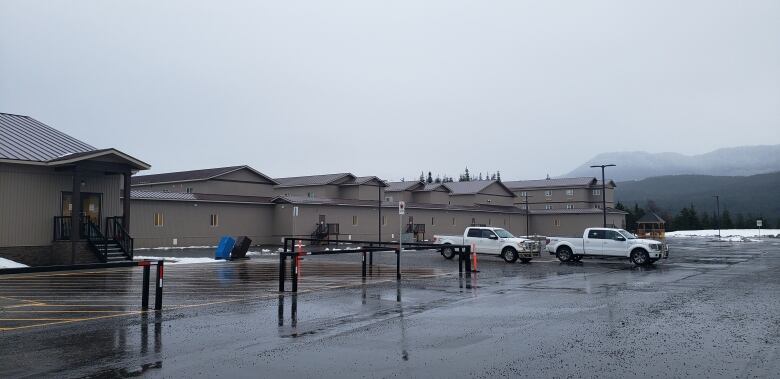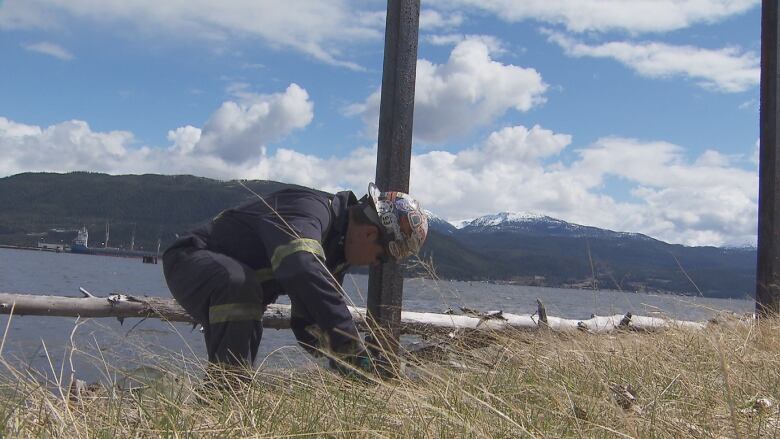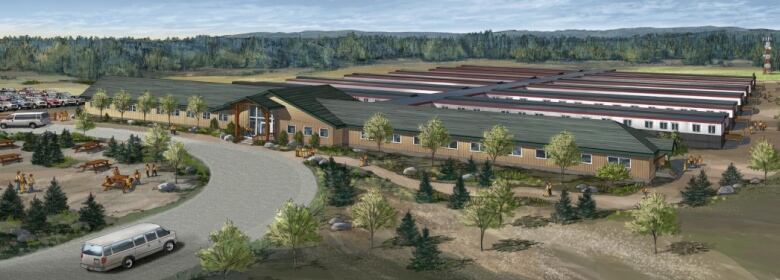$40B LNG project cuts hundreds of workers to prevent COVID-19 spread in B.C. work camps
LNG Canada flying about 750 workers home from work camps in Kitimat

The biggest private investment infrastructure project in Canadian history is slashing staffas it tries toprevent COVID-19 infections from getting a foothold in workers' camps in northwestern B.C.
LNG Canada says it's sending home half of its work force from the company's $40-billion export facility project in Kitimat, B.C.
The company's move to lay off about 750 peopleand fly them home across the country is being doneout of an "abundance of caution," said Susannah Pierce, the company's director of corporate affairs.
It's just one of several mega-projects in the province trying to manage the safety of up to more than a thousandindustrial workers livingin close quarters far from home.

Pierce addedthere could be further work force reductions, reducing staff to "critical levels" with only essential workers staying on to conduct site security and do environmental monitoring.
After federal and provincial officials banned large gatherings, some workers and local officials raised concernsabout thelarge numbers of people living in close quarters in worker accommodations.
LNG Canada said it can't confirm exactly how many people areworking and living in the project's three work camps, but KitimatMayor Phil Germuthtold CBC Newsapproximately1,500 workers are on site.
Could be cut to justessential workers
"We're concerned, like anyone, but it's not a panic situation," Germuth saidthe day before LNG Canada announced its workforce cuts.
He believesthe camp's preventative measures are adequate.
"Everyone is doing their best to make things as smooth as possible and hope for the best. But it can change in minutes," he said.
Workers who fly in from across the country have been living,exercising and eating togetherin the hotel-like campsthat feature a movie theater, gymnasiums andround-the-clock cafeterias.

Prior to Monday night's announcement,LNG Canada said it was working closely with Northern Health to reduce the COVID-19 risks there.
The company said worker facilities hadinstitutedextra sanitizing, compulsory hand washingand limitations on the number of workers that could enter the dining room at one time.
Now, many of those workers are headed home.
For those that remain, LNG Canada says anyone with COVID-19 symptoms will be treated inonsite health facilitiesand may be quarantined in the camp.
Camps can isolate workers if needed
Coastal GasLink, the company building the $6.6 billion pipeline that will feed LNG Canada, is also reducing staff.
Companyofficials say their work traditionally slows at this time of year, during spring break-up, but nowCOVID-19 concerns are also in the mix.
They say they will draw on mostly local workers, in small crews working over large areas, to complete essential work.
In February, 1,100 people were on the job clearing a route for a pipeline across northern B.C., and many were living in worker accommodation camps.
Coastal GasLink saidmedics are monitoring its workers and privately contracted medical experts are on standby.
Site C camp still open
Meanwhile, in the northeastern part of the province, approximately1,000 workers have been living in camp at BC Hydro's Site C construction project.
Site C spokesperson Dave Conway said on Monday thatthe Two Rivers Lodge near Fort St. John had closed its gym and theatre and was doubling down onsanitation practices.
Conway saidthe lodge hasitsown health-care staff, facilitiesand equipmentincluding test kits and medical supplies.

"The camp has the ability to comfortably isolate any workers who are awaiting test results or who may test positive for COVID-19," Conway said earlier this week.
Wednesdayafternoon, in a written statement, BC Hydro said the project would only continue withessential work to help reduce the number of workers staying at the worker accommodation lodge.
According to BC Hydro, 4,330 workers were employed at the northern mega-projectin December2019most from out of town.












_(720p).jpg)


 OFFICIAL HD MUSIC VIDEO.jpg)
.jpg)



























































































